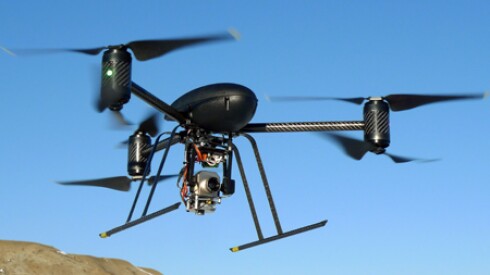Justice & Public Safety
-
The Osceola County Board of Commissioners approved the purchase of new portable and dual band radios at a cost of $330,552 during its meeting Dec. 16, by a vote of 5-1.
-
The new unit, part of the Office of Information Technology Services’ statewide strategy, will focus on New York State Police’s specific needs while preserving shared IT services like AI and information security.
-
The City Council has approved a three-year, $200,000 contract to install the surveillance devices. Data collected may be used by other state and local law enforcement at city discretion, the police chief said.
More Stories
-
The fully electric Chevrolet Bolt has a defect that can cause its battery to burst into flames. General Motors has issued a recall and developed a fix, but some customers are giving up on EVs for now.
-
A drone program has launched to give officers a vantage they don't have from the ground — whether it's getting eyes on a hostage situation, conducting a search and rescue operation, or tracking a fleeing suspect from the air.
-
Ohio has announced a new pilot that involves using mass spectrometers to increase efficiency and safety around drug testing to increase officer safety, aid in investigations and help connect individuals to treatment.
-
After the accidental firing of a weapon, the Virginia Beach Police Department has recalled all of its gun holsters. The special holster makes a body cam automatically turn on when an officer withdraws a gun.
-
The bill, which passed the Ohio Senate earlier this year, passed the Ohio House Criminal Justice Committee yesterday. The legislation would make telecommunications fraud a fourth-degree felony.
-
Next year, officers from four Pennsylvania police departments will be entering virtual reality to help deal with possible, real-life scenarios where they have to de-escalate a situation to make sure everyone is safe.
-
Microsoft suspects that Nobelium, the group of state-sponsored Russian cyber criminals responsible for the SolarWinds fiasco, is taking aim at suppliers and resellers of tech products, including cloud-based solutions.
-
Genealogy information helped Cook County, Ill., investigators in the Chicago area identify a young North Carolina native as one of the long unidentified victims of serial killer John Wayne Gacy.
-
The idea behind killware, a new type of cyber attack, is to disable or manipulate the electronic or computer equipment that humans depend on, resulting in potential harm or death to individuals.
-
Since the pandemic prompted Minnesota courts to find ways to conduct proceedings without meeting in person, judicial officials have gained experience with using video conferencing, leading to benefits and drawbacks.
-
As users turn to Facebook to share info about crimes ranging from petty theft to murder, police are struggling to follow false leads on the website — and, sometimes, to protect people wrongly accused of serious crimes.
-
Starting Friday, all Rockford Police Department officers and detectives are expected to be trained on body-worn camera operations as well as on an 18-page policy report on how the cameras are to be used.
-
On Wednesday, the Kentucky Supreme Court was asked to decide whether police should be allowed to track people in the community by pinging their cellphones without a court-issued search warrant.
-
Police and city officials on Tuesday unveiled the department’s $3 million Real Time Crime Center, which features all-seeing live technology nestled in a hub on the fourth floor of police headquarters.
-
An announcement Monday from Amazon’s self-driving car unit Zoox that it will soon start testing its autonomous vehicles in downtown Seattle drew criticism from transportation safety advocates.
-
The Big Sky Fire Department, located in the community of Big Sky, Mont., is testing out Pano's AI wildfire detection technology to help increase fire visibility and improve response efforts.
-
The device, called the Raven, is going through beta testing now and will launch for general sales in January. It’s designed to detect gunshots, as well as other sounds such as glass breaking, and activate nearby cameras.
-
Dallas police have chosen First Sign, an early intervention system by Benchmark Analytics developed in partnership with University of Chicago researchers who’ve studied police misconduct for several years.
Most Read





























